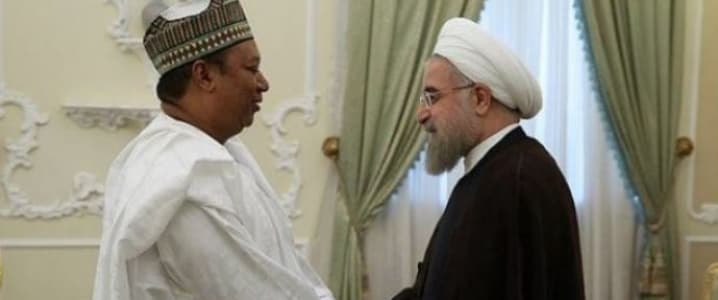At the 23rd World Energy Congress in Istanbul last week, talks regarding the OPEC crude oil production freeze took a surprising turn. Energy Minister Noureddine Boutarfa from Algeria has taken the lead on this deal, having facilitated prior negotiations between Saudi Arabia and Iran. Informal meetings took place in Algeria leading up to the announcement on September 28th that the two competing nations could proceed to accept a production freeze. Countries aiming to participate in the deal have failed to agree on key aspects but are now coming to the table.
Algeria has been described as one of OPEC’s most negatively affected countries in response to low oil prices. Low oil prices hinder exports and earnings for oil majors, putting their respective countries into economic decline. In order to regain stability, it’s in Algeria’s best interest to make the production freeze succeed. Algeria has a long-standing relationship with Saudi Arabia and Iran that helped bring these competitors together diplomatically. Boutarfa was with Saudi Arabia and Iran for the duration of their private talks and is believe to have prompted their unified agreement.
Concerns exist for other countries as well. If the price of oil doesn’t rise fast enough, member nations may decide to return production output to their higher levels. Countries are skeptical on whether the agreement will succeed and may decide not to participate whatsoever. Any rising concerns with respect to other countries’ participation may deter those pondering participating as well.
Vladimir Putin has mentioned how eager Russia is to work with OPEC on their oil production freeze. Other Russian leaders, however, weren’t as stoked. Igor Sechin, Vice-Chairman of the Board of Directors for state-owned oil company Rosneft and close ally of Putin’s, shared a different opinion. At the WEC, he questioned why Russia should participate and potentially detriment from the deal. On October 7th, Energy Minister Alexander Novak also opposed the notion that this deal will succeed. The lack of agreement from the leading nation in energy exports shows there’s still much to discuss. Related: Oil Futures: Who Is Trading What?
The next OPEC meeting is November 30th in Vienna where the countries will talk numbers and see how Russia will contribute. The idea of a production freeze has been approved but now the tricky part comes where they have to decide who contributes how much. Current daily output by OPEC rests at 33,394 million barrels/day as of Sunday but the member nations have settled on cutting back to between 32.5 million and 33 million barrels/day. Iran is still in the process of rising back to their pre-sanctioned production levels making this next discussion more difficult. Iran wishes to only return to their market share of around 12 percent as opposed to a certain number of barrels per day, which could be more easily accomplished.
OPEC is on the right track to lowering production meaning crude oil prices could rise fairly soon. Depending on the outcome of the meeting at the end of November, investors could benefit from buying oil futures. Saudi Arabia’s Energy Minister Khalid Al-Falih thinks it’s possible for oil to reach $60 a barrel by the end of the year. If Russia truly is to be included in the deal it could affect Russian oil majors like Lukoil or Tatneft. Any other oil companies producing in OPEC nations will also benefit from this deal. OPEC’s success would mean economic growth returning to countries like Algeria raising the value of their home currencies.
By Michael McDonald of Oilprice.com
More Top Reads From Oilprice.com:
- Near Term Oil Prices Can’t Go Much Higher
- Is Clean Coal An Option For India?
- Russia Says Six-Month Oil Output Freeze Most Efficient


















